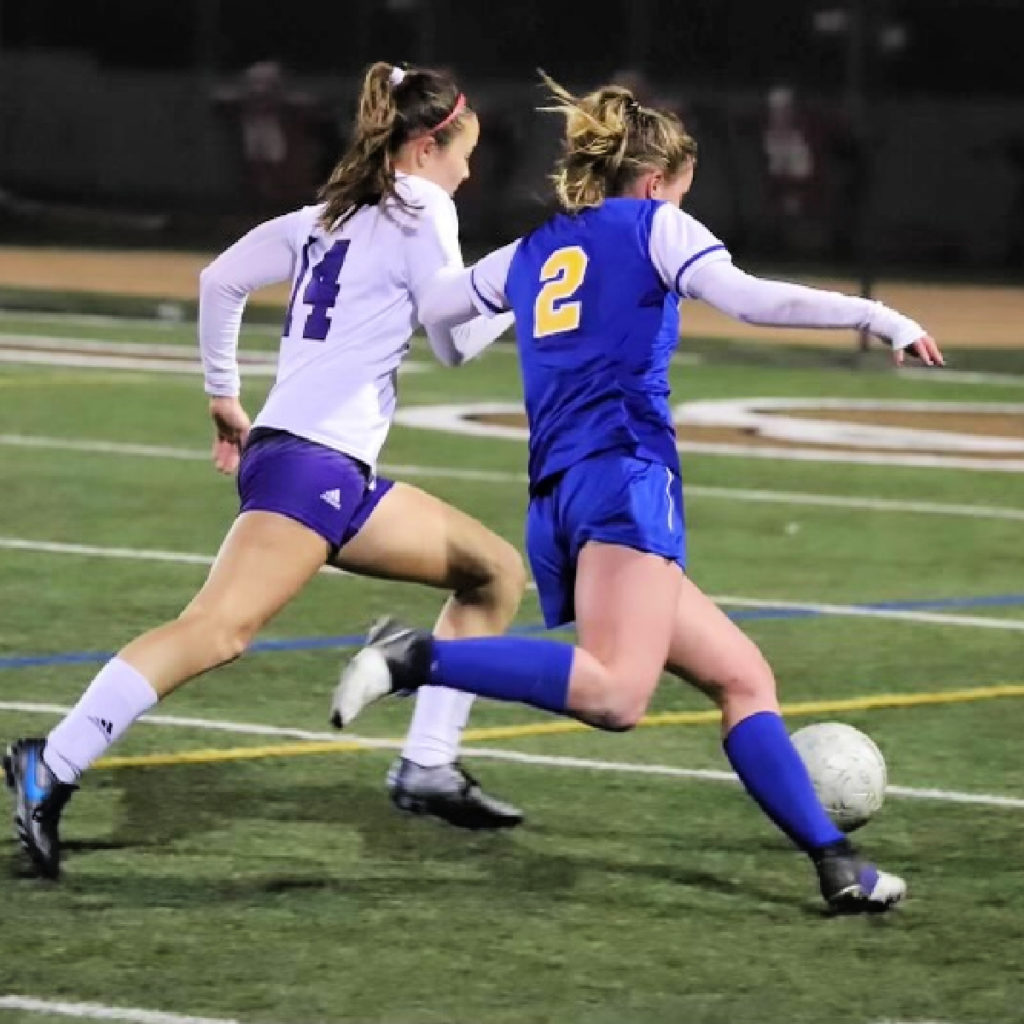
When You Stop Playing Sports
By Guest Contributor, Lila Dubois
When You Stop Playing Sports. To those who have never played competitive sports, calling the end of a youth soccer career the “end of an era” might seem a little dramatic. To those who’ve never taken a nap in the booth of an Applebee’s in-between games five and six of the weekend, waking only for breadsticks. Or to the parents who’ve never been in the driver’s seat of a minivan with six sweaty, smiling teenage girls blasting music and comparing varying degrees of turf burns in the carpool home from practice; to those who haven’t been in our shoes, the idea of transitioning to a life without soccer doesn’t feel worthy of a near identity crisis.
I’ve played soccer all my life, joining club when I was 10, and working my way up to the Academy team, where I played until my senior year of high school. It was my life, my passion, a near part-time job. Truly, it became my purpose – to get faster, more skilled, focused, and tactical – to make the starting line-up of one of the top teams in the country, to get scouted by college coaches, to make sure I was doing my part to ensure a win for my teammates and coaches.
Read more like this: What To Do If Your Child Gets Cut From A Team
And so when something a person is so singularly driven towards, as kids playing any sport at a level like this must be, is stripped from them, whether it is by choice or aging out or graduating, feeling a little lost is to be expected. I quit by choice at the end of my career, and even still, I felt confused and purposeless, even though I had decided myself this was something I wanted to leave. But, having been through it all and having come out the other side, I do have a few pieces of advice for any of you who are in the midst of the life after sport transition.
1. Continue Being Active
This one is super easy to overlook or brush off, but what a difference it makes. When you go from training five to six days a week to all of a sudden nothing, on a physical and mental level, your body is thrown for such a loop. It’s come to count on these daily outlets to let off steam, to release pent-up emotions, to corral energy to something productive.
Once I realized how much I missed moving my body and started getting back into fitness, I found I was happier, less anxious, and actually more motivated in all aspects of my life. There truly is no avoiding the connection between our body and mind, and whereas before, we never had to worry about getting in exercise, in the non-sport world, we have to make a conscious effort to keep active.
And by being active, I don’t mean you have to be in the gym every morning lifting and running on the treadmill (of course, unless you want to). Taking a step back from soccer has actually allowed me to find other physical outlets I love just as much, like hiking, doing YouTube yoga with my mom, taking my dog trail running, skiing, and surfing more. Just because your fitness isn’t being praised by coaches or allowing you to beat that last defender doesn’t mean you can’t celebrate and be proud of it for all it can still do.
2. Find Another Team
I know when I was playing on my Academy team, I often saw my teammates more than I did my own family. Your team becomes your home away from home; you know an uncalled-for amount about their bunions and blisters, text their crushes for them on the long drives home, sleep in the same hotel beds, help them up when they’re fouled (and then make sure the whole team gangs up on whoever fouled them). And I’m not going to lie, you miss jumping into a mess of sweaty hugs at the final tie-breaking penalty. You miss having someone there to pick you up after an off day.
There is something very special about teams; the idea of sacrificing, pushing each other to our limits, and working for a common cause. And so, especially having grown up in that kind of community, I think finding another sort of team outside of the sport is important. It can be anything – a group of friends, a company or work endeavor, a club, a charity organization, a sorority, or whatever! Having a community to push and lift you up and, and vice versa, for you to support and think of makes it feel easier to find a purpose or way in life.
3. Take What You’ve Learned
Finally, I’d encourage you to be proud of all the things you’ve gained from being a high-level athlete and to apply them in anything else you do! I think often times while in the thick of playing, we get lost in our shortcomings – how we weren’t good enough for this team or turned the ball over too many times in that game.
But as an outsider looking in now, I see how much value, beyond the skills learned or games won, there is in what competitive sports do for a person. I realize now how talking to scouts and coaches from such a young age allows me to communicate confidently with authority figures, like professors and employers, in my daily life now. Or how being able to brush off screaming coaches has enabled me to embrace constructive criticism elsewhere in my life, not taking it personally but realizing it’s an opportunity to grow and improve. While the goal may no longer be in the context of a sport, you can take the determination you’ve fostered and a mentality of hard work to your goals anywhere else in life. Even just the practice of taking care of your body is such a good life habit you can take with you!
My point here is really to say that even if you’re not destined for the national team, in no way is this time you’ve spent cultivating your craft a waste. You’re a bigger and better person because of it.
The author played ECNL, Development Academy, and high school soccer. She is currently a student at the University of Pennsylvania studying writing and music.














